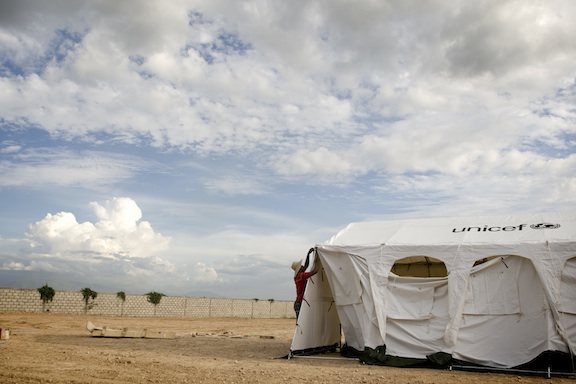Above: a cholera treatment centre in Haiti after the earthquake in 2010 (UN Photo)
By the Caribbean Journal staff
Haiti is slated to receive a $50 million grant from the International Development Association, following approval from the World Bank’s Board of Directors.
The grant will target more than 300,000 people in rural areas of Haiti hit hard by the cholera outbreak.
The “Sustainable Rural and Small Towns Water and Sanitation” project “aims to save lives by preventing cholera and waterborne diseases in high prevalence zones, and strengthen the capacity of local agencies to deliver water and sanitation services in rural areas and small towns,” according to a statement from the Word Bank.
While Haiti has made great strides in controlling the cholera epidemic since it was brought to the country in 2010, heavy rains led to a sharp increase in cases in the first quarter of 2015.
“While deaths from cholera and waterborne diseases declined last year and remain below one percent of cases, cholera resurgence remains a threat and water borne diseases are one of the leading causes of infant mortality in the country,” the World Bank said.
The new project will target areas with high cholera incidence rates in the dry season, aiming to reinforce and complement activities by other partners in the country.
The aim is to improve access to water sources for 150,000 people, while improving sanitation and hygiene for 50,000 people.
Another 100,000 people are slated to benefit from “small repairs and expansions,” according to the bank.
The project will also lay out a roadmap for universal access to sanitation and water by 2030.
